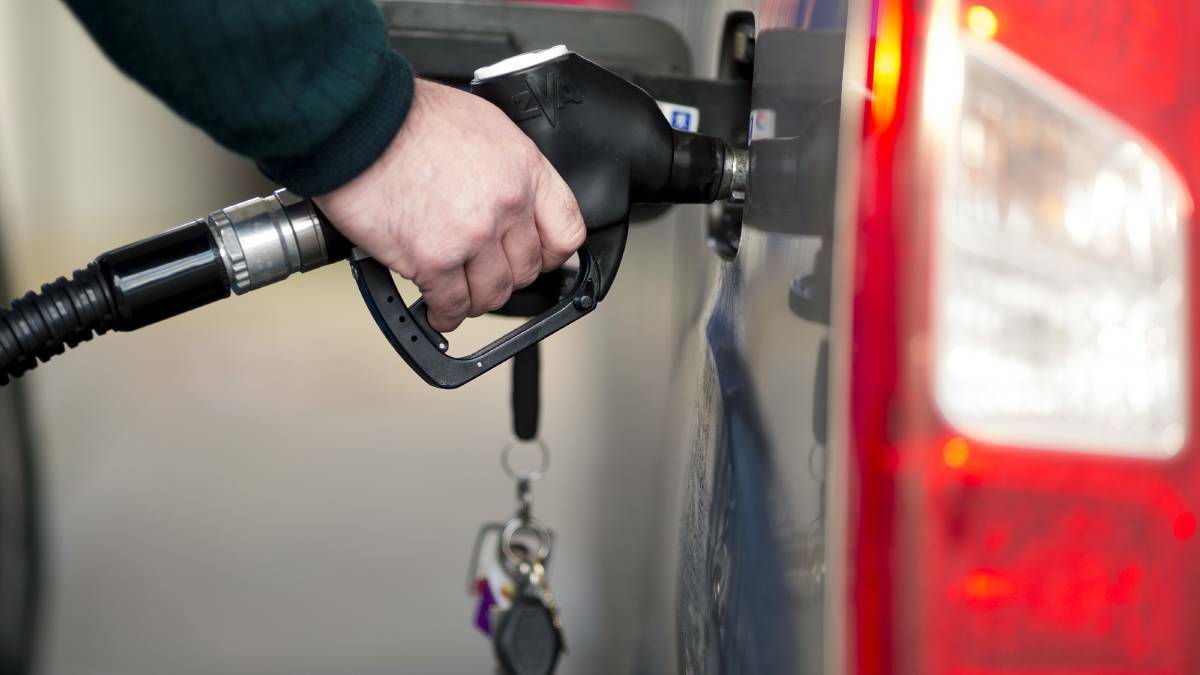
Petrol prices varied by more than 20 cents per litre at Warrnambool service stations on Thursday.
Subscribe now for unlimited access.
or signup to continue reading
The Standard recorded prices varying from 203.9 cents per litre to 219.9 cents per litre.
In April, the price dropped by more than 25 cents a litre to 173.9 cents per litre.
But the prices have crept back up, despite the halving of the fuel excise months ago.
RACV's head of media and communications Eleanor Colonico said the majority of unleaded fuel was currently being sold across the state at a variety of prices, most ranging between 199.7 and 224.9 cents per litre.
"In Warrnambool, the majority of outlets are selling between 199.3 and 204.2 cents per litre for unleaded fuel, which is cheaper than metro areas," Ms Colonico said.
"A few outlets are selling between 219.3 and 224.2 cents per litre - consistent with the rest of the state.
"The average fuel price trend in Melbourne has been relatively consistent over the last week and while there has been a slight increase in prices since yesterday it is still currently cheaper than it was last Wednesday (214.3 cents per litre on June 15).
"We are seeing an average of 206.7 cents per litre for unleaded in Melbourne and RACV recommends not paying above 201.9 cents per litre wherever possible in the metro area."
Ms Colonico said the state-wide trend for fuel prices over the coming weeks was difficult to predict.
She said it would depend on a range of factors, including geographical area, availability, international benchmark prices, taxes, the value of the Australian dollar relative to the US dollar and levels of competition in different areas.
Nationwide, the costs are now rivaling the record which was set more than a decade ago. In 2008, the nation's average price of petrol was equivalent to $2.12-2.19, when aggregated to today's dollars.
It's a sizable jump in a short amount of time, considering prices fell to below $1.42 on average in Sydney when the pandemic lockdown hit in March 2020.
The main culprit to blame for the skyrocketing petrol price is Russia. Or, to be more specific, the rising insecurity surrounding Russia's invasion of Ukraine.
"We're seeing a significant withdrawal of supply from Russia simply because of trade embargoes," said Associate Professor Liam Wagner, energy and economics expert from the University of Adelaide.
At the same time that oil demand is increasing, the supply of oil is decreasing.
"I think what the real issue with the international oil markets is, is there's too much market power," Professor Wagner said.
"We have very few suppliers of oil. You know, there's probably a couple of dozen countries that supply the world with their oil and, you know, we rely on petroleum products for transport in particular.
"We rely on petrol. For the supply chain, we rely on diesel. And diesel basically drives everything, you know, getting people to and from work, yeah OK that's unleaded petrol, but getting your food to the supermarket, getting your clothes to the shops, that is all done by diesel."
As well as the international pressures, Australia also faces a distinct shortage of fuel due to its limited strategic petroleum reserves.
"Australia doesn't have strategic petroleum reserves and we have for the past 10 years been well below our mandated IEA (International Energy Agency) storage requirements onshore," Professor Wagner said.
"We have about 60-odd days worth of storage onshore which is well below the 90. So we've gone now more than 120 months in a row of being under the IEA international treaty requirements."
IN OTHER NEWS:
Our journalists work hard to provide local, up-to-date news to the community. This is how you can access our trusted content:
- Bookmark https://www.standard.net.au/
- Make sure you are signed up for our breaking and regular headlines and newsletters
- Follow us on Facebook, Twitter, Instagram and LinkedIn
- Tap here to open our Google News page.
- Join our Courts and Crime Facebook group and our dedicated Sport Facebook group
- Subscribe
Now just one tap with our new app: Digital subscribers now have the convenience of faster news, right at your fingertips with The Standard:















